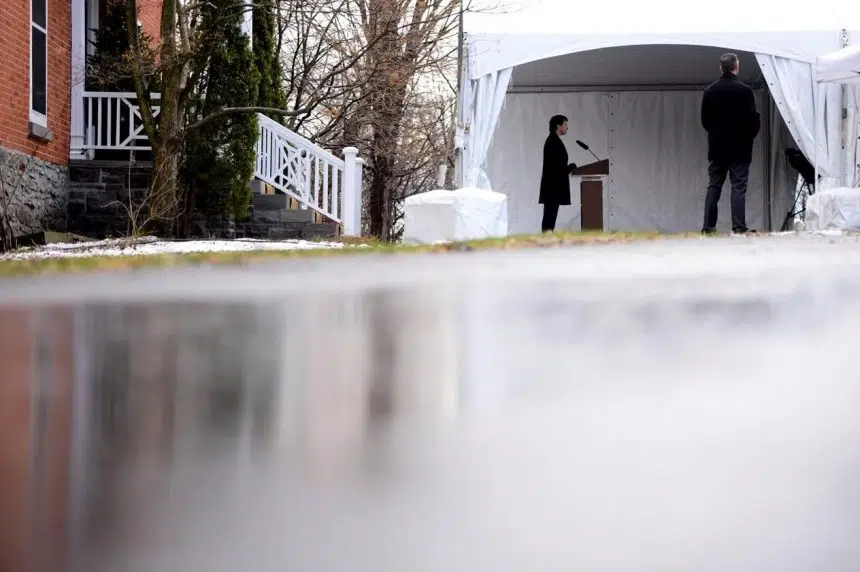TORONTO – Canada’s COVID-19 death toll passed the 2,000 mark on Thursday as scientists across the country scrambled to find ways to mitigate the pandemic in the form of a treatment or vaccine and Saskatchewan became the first province to outline plans for reopening the crippled economy.
The grim milestone came as Ontario announced that 54 more people had died from the disease – a slightly bigger increase than on Wednesday.
Prime Minister Justin Trudeau said Canadians have been failing our parents and grandparents in long-term care homes.
The government would be sending the military to help in nursing homes in Ontario and Quebec, but Trudeau said it should never have come to this.
“We shouldn’t have soldiers taking care of seniors,” he said. “We will all have to ask tough questions about how it came to this.”
To help combat the coronavirus scourge, the federal government announced further measures aimed at mobilizing scientists and researchers.
Trudeau said Ottawa would roll out $1.1 billion for a national medical and research strategy, with about $350 million aimed at expanding national testing and modelling to better prevent the spread of COVID-19 while a vaccine is developed.
A vaccine is the long-term solution, Trudeau said, but until then, Canadians need to slow the spread to allow the economy to get going again.
The lion’s share of the funding – $662 million – was earmarked for clinical trials to test vaccines and treatments as they are developed.
Ottawa had already committed $275 million for research and created a $192-million innovation fund for companies and institutions developing drugs and vaccines.
Public health experts say mass testing is critical to detect people who have the virus but no symptoms. The concern is that asymptomatic carriers can unwittingly infect others and trigger a second surge in cases. The country’s top public health officer, Dr. Theresa Tam, has said 60,000 daily tests are needed, triple the number now.
Tam also said it was important to be able to detect who might be have developed immunity to the COVID virus and would be safe in the community.
In all now, 2,028 Canadians have died from coronavirus disease. Isolation measures aimed at slowing the pandemic have brought the economy to its knees.
More demands on the federal treasury came from the country’s municipalities. The Federation of Canadian Municipalities asked Ottawa to give local governments billions in emergency funding to stave off financial ruin.
Local governments need as much as $15 billion over the next six months to pay for services at a time of falling revenue, the federation said.
As examples, the organization said transit ridership was down because people were being told to stay home. Municipal councils have also been considering, or have approved, delays in collecting property taxes to give residents a financial break.
In British Columbia, Health Minister Adrian Dix said a surge in cases was largely due to an outbreak at Vancouver-based United Poultry Co. Twenty-eight workers had tested positive. At least 90 people have died from coronavirus disease in B.C., many in long-term care homes.
Colin Perkel, The Canadian Press











